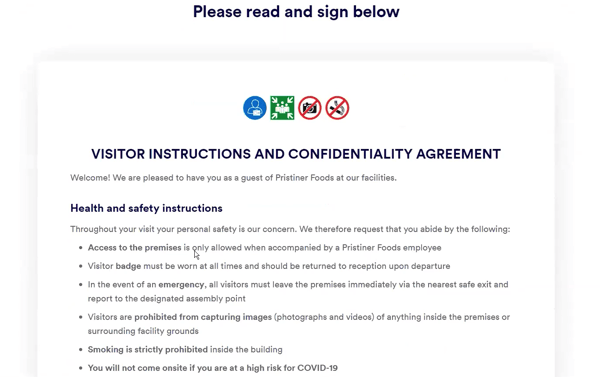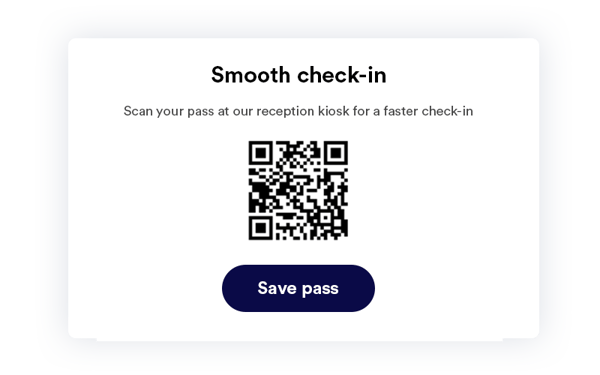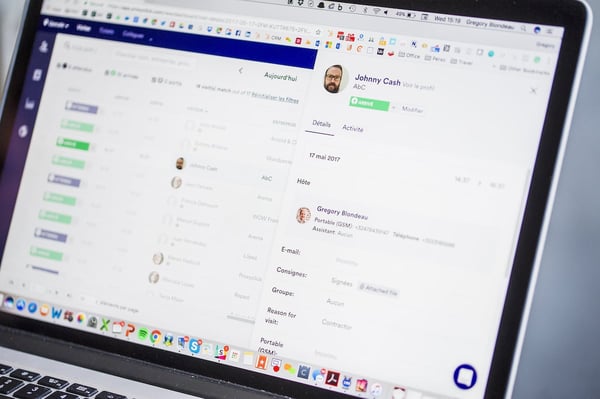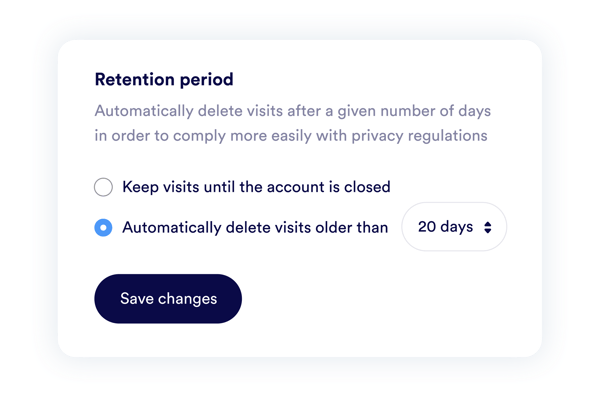The current global health crisis has had essential industries scrambling to adapt their daily processes to stay operational.
But taking the required measures to keep people from infection while at the same time maintaining critical public and commercial services is no simple task.
And in today’s interconnected world of industry, few play as essential a role as logistics companies. They control the movement of goods bound for vendors and their customers, managing the people, properties, technologies, and transportations that those organizations need to reliably ship and receive products and materials.
During the COVID-19 crisis, demand for deliveries of all kinds have been so high that volunteers and national guard members have had to step in to aid supply chain processes. Companies like FedEx have been working hard to get items where they need to be, while implementing company-wide health procedures for business continuity.
Undoubtedly, logistics players have kept the world running for many of us. It’s therefore imperative that these businesses employ every technology they can to optimize their operations, while keeping employees and visitors safe.
5 ways the logistics industry can benefit from visitor management during health crises
And as lockdowns end and offices and buildings begin to reopen, the benefits of strengthening safety measures within logistics companies can’t be ignored—especially when it comes to protecting employees like truck drivers crossing borders on the frontlines, and all of the people they encounter.
To that end, below are the ways in which logistics companies can benefit from cloud-based visitor management software. (Learn the benefits of visitor management to other essential industries in our series of articles on food manufacturing, chemicals, industrial manufacturing, data centers, and pharmaceuticals).
1. Sending documents and implementing effective visitor screenings before they arrive.
With the right visitor management system (VMS), you can ensure that employees, customers, contractors, and guests are cleared to enter the building, and aware of necessary company health procedures.
Send visitors or contractors health guidelines, NDAs, and other agreements in advance via an invitation email. Communicate specific safety measures to prevent the spread of the virus, such as social distancing requirements or temperature checks on site, and have guests sign off on risk-reducing health screening questions.

This process lets logistic companies effectively vet and inform individuals before they ever arrive at properties or engage with their employees—reducing the risk of careless behavior or accidental exposure.
2. Encouraging safer, fewer, and better interactions in the building with access control integrations.
Social distancing is a key measure everyone needs to be taking during this health crisis, and that means minimizing unnecessary person-to-person contact.
Visitor management systems help make that happen by only allowing approved essential workers and visitors on the premises.
By integrating with access control systems such as doorways or turnstiles in your building, limit individuals' access to specific areas of your building, during a specified time of the day.
Furthermore, face-to-face contact is only one of the ways COVID-19 spreads. Aside from laying out sanitation stations, it’s important that businesses do what they can to minimize all physical contact with potentially contaminated surfaces. That goes double for frequently touched objects like doorknobs and keypads.
 If granted access, visitors can scan unique QR codes directly from their invitation email on their mobile device as part of the touchless check-in process provided by a cloud-based visitor management system.
If granted access, visitors can scan unique QR codes directly from their invitation email on their mobile device as part of the touchless check-in process provided by a cloud-based visitor management system.
3. Limiting virus spread in the workplace with alternatives to front desk kiosks and on-site health screenings.
Limiting the spread of the virus by reducing surface touching doesn't just apply to doorways. While there are guidelines for consistent disinfection of a front desk iPad kiosk connected to your VMS, these can be removed so visitors aren't required to touch the hardware upon arrival.
Using the desktop version of Proxyclick, for example, allows for companies to temporarily remove kiosks from the lobby. While respecting social distancing rules, front desk staff can manually check in guests straight from their computer.

Upon their arrival, ask visitors a set of questions prompted by your VMS to help you better understand their current health situation, and whether they should be cleared to enter.
If company procedures require you to ask sensitive questions, activate automatic data deletion in your VMS to remove any answers stored after a specified number of days. This can help you abide by local or national health data privacy regulations.

4. Driving data efficiency with deeper insights.
One of the key components of any supply chain’s success are the people involved, and visitor management systems that help track, analyze, and instantly report everything logistics teams need to know about them.
More importantly, to appropriately respond to a crisis like COVID-19, we need to learn all we can about the situation surrounding it.
From following exactly who entered a warehouse and when, to better understanding which potentially infected visitors came in contact with which employees on a given day —the real-time reporting features of a VMS provide incredible transparency into visitor and employee activity.
Visitor data can also be used to extract important contact information during crises. If weeks following a person's visit, your company learns they've been in contact with a sick person in the building, immediately and discreetly reach out to let them know they might be at risk of contracting the virus.
5. Connecting systems and tools for managing crisis situations without interruption.
The best thing about integrated systems like visitor management solutions is right in the name with the word ‘integrations’.
During these times of crisis, the companies of essential industries can’t just shut down to implement adjustments to better combat coronavirus. But with cloud-based integrated solutions they don’t have to.
Rather, these software solutions are designed to be smoothly integrated into ongoing operations, allowing organizations to download and employ technologies that coincide with their existing systems.
Meanwhile, visitor management systems with an open API let companies seamlessly connect and enhance hardware like electronically locked doorways and video collection tools for greater returns.
If any unforeseen technical hiccups do occur, or if companies just have general questions and concerns about visitor management systems, provider support teams are easy to contact and ready help in any way they can.
Taking action across the logistics industry, today and tomorrow
The coronavirus has proven what many would prefer to ignore, that global disasters will strike at any time, and when they do, it pays to have top industry cloud-based tools and technologies at your disposal.
But as we continue to make our way through this crisis, we need to remember that it’s not enough for logistic companies to simply adopt technologies suited for today’s problems and then rest once things pass.
Ultimately, we're all preparing for a new normal in the workplace of today. So when trouble does show itself on this kind of scale, essential companies need every advantage they can get.
To learn more about how how businesses can benefit from visitor management solutions during and after COVID-19, see all related articles in our essential industry blog series.